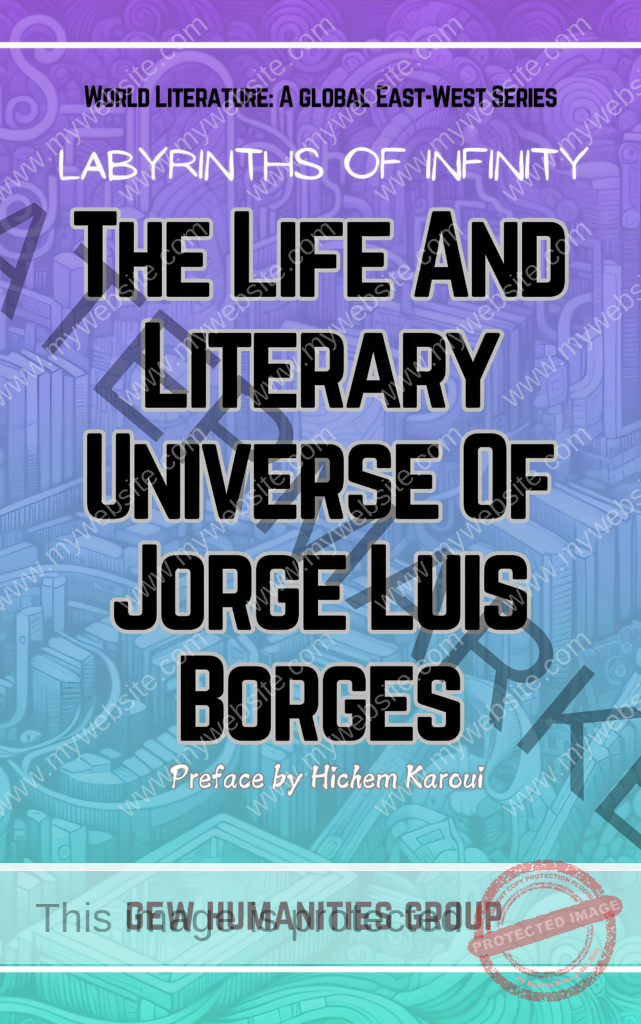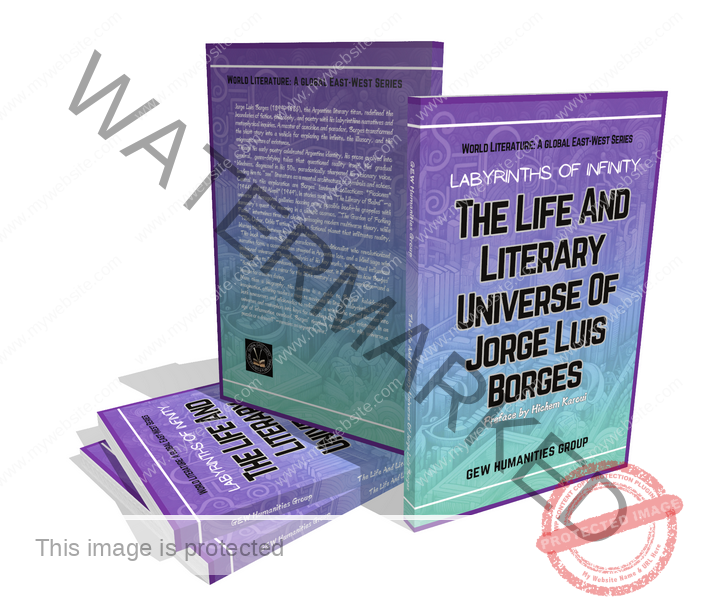 Jorge Luis Borges (1899–1986), the Argentine literary titan, redefined the boundaries of fiction, philosophy, and poetry with his labyrinthine narratives and metaphysical inquiries. A master of concision and paradox, Borges transformed the short story into a vehicle for exploring the infinite, the illusory, and the enigmatic nature of existence.
Jorge Luis Borges (1899–1986), the Argentine literary titan, redefined the boundaries of fiction, philosophy, and poetry with his labyrinthine narratives and metaphysical inquiries. A master of concision and paradox, Borges transformed the short story into a vehicle for exploring the infinite, the illusory, and the enigmatic nature of existence.
This book delves into the life, mind, and enduring legacy of a writer whose works continue to captivate scholars and readers alike, bridging the realms of myth, mathematics, and metaphysics. Born in Buenos Aires to an intellectual family, Borges was immersed in literature from childhood. A pivotal period in Europe during World War I exposed him to avant-garde movements like Spanish Ultraism, which later influenced his sparse, symbolic style. Though his early poetry celebrated Argentine identity, his prose evolved into cerebral, genre-defying tales that questioned reality itself. His gradual blindness, diagnosed in his 50s, paradoxically sharpened his visionary voice, leading him to “see” literature as a mental architecture of symbols and echoes. Central to this exploration are Borges’ landmark collections: *Ficciones* (1944) and *El Aleph* (1949). In stories such as “The Library of Babel”—a universe of hexagonal galleries housing every possible book—he grapples with humanity’s quest for meaning in a chaotic cosmos. “The Garden of Forking Paths” intertwines time and choice, presaging modern multiverse theory, while “Tlön, Uqbar, Orbis Tertius” crafts a fictional planet that infiltrates reality, blurring the lines between invention and truth. Borges’ essays, like “The Analytical Language of John Wilkins,” dissect language’s power to shape perception, and his poetry, rich in Argentine history and personal mythmaking, reveals a nostalgic counterpoint to his cerebral fiction. Borges’ genius lies in his ability to condense vast philosophical ideas into haunting, lyrical brevity. Themes of mirrors (symbolizing identity and recursion), labyrinths (representing existential quests), and circular time permeate his work, inviting readers to question the very fabric of reality. His influence extends beyond literature, inspiring fields as diverse as quantum physics, cognitive science, and postmodern theory. Writers like Gabriel García Márquez, Italo Calvino, and Umberto Eco credit him as a pioneer of magical realism and metafiction, while his conceptual daring resonates in films (*Inception*), video games (*The Witness*), and internet-era musings on infinity. This book examines Borges’ paradoxes: a traditionalist who revolutionized narrative form, a cosmopolitan steeped in Argentine lore, and a blind sage who envisioned universes. Through analysis of his key works, intellectual influences (from Kafka to Schopenhauer), and cultural impact, it illuminates how Borges’ “Fictiones” became a mirror for the 20th century’s existential anxieties—and a beacon for creative daring.
More than a biography, this volume is a guide to Borges’ kaleidoscopic imagination, offering readers a map to navigate his literary labyrinths. It invites both newcomers and aficionados to rediscover a writer who turned libraries into universes and metaphors into keys for unlocking the enigma of existence. In an age of information overload, Borges’ timeless question—“Is this universe a puzzle or a dream?”—remains as urgent as ever.

